April 20, 2025 | 05:49 GMT +7
April 20, 2025 | 05:49 GMT +7
Hotline: 0913.378.918
April 20, 2025 | 05:49 GMT +7
Hotline: 0913.378.918
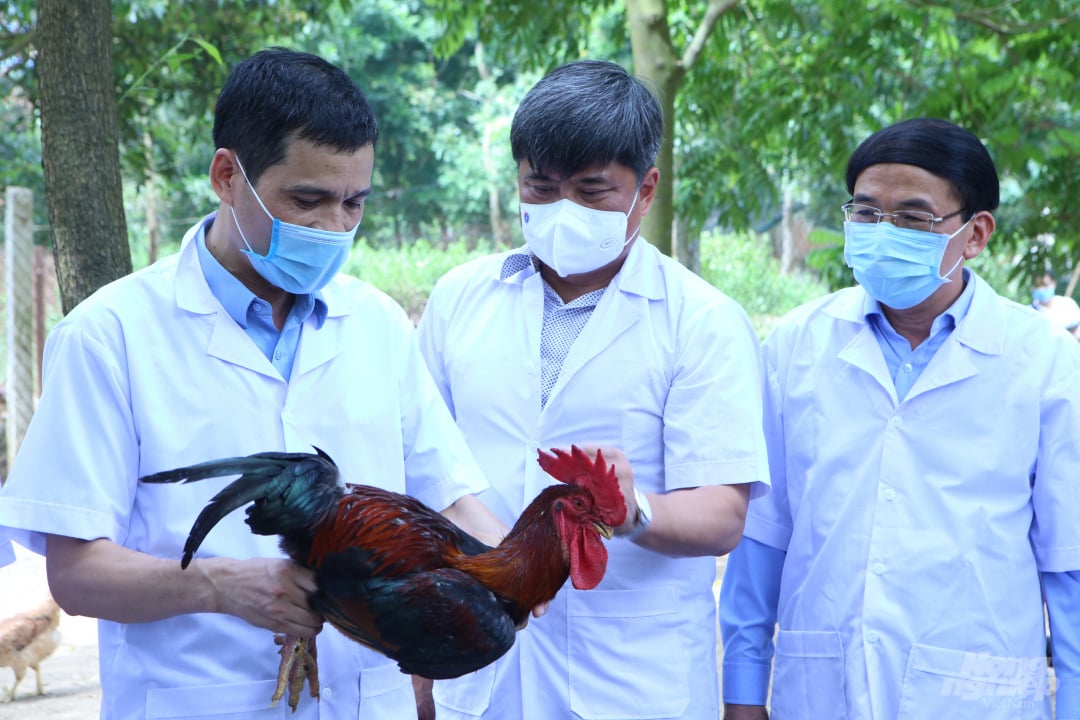
Deputy Minister of Agriculture and Rural Development Tran Thanh Nam (centre) visits Hadico Poultry Farming Enterprise in Co Dong commune, Son Tay town, Hanoi. Photo: Minh Phuc.
Hadico Poultry Farming Enterprise is conserving and developing Duong Lam sugarcane chicken breed (chicken offered to the king) in La Gian village, Co Dong commune, Son Tay town. This place is considered the northern provinces' “genes keeper and cane chicken breed provider capital”.
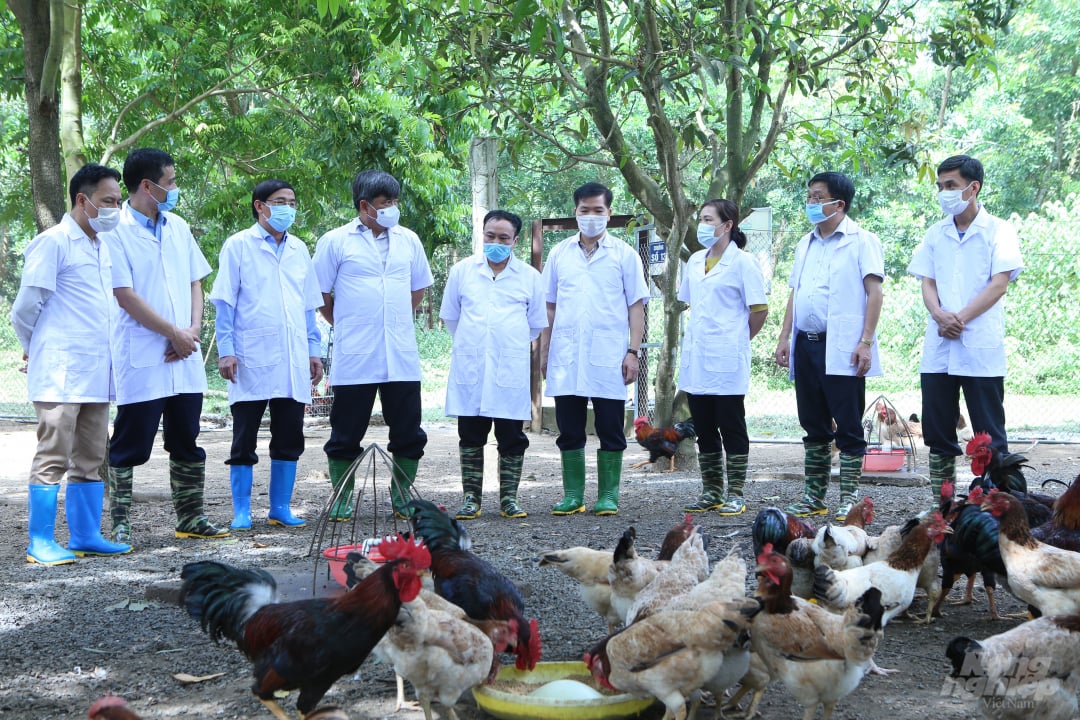
Sugarcane chickens’ parent herds are raised in Son Tay. Photo: Minh Phuc.
Among the group of famous large-bodied chicken breeds, sugarcane chicken is the most beautiful and delicious with golden and crispy skin, bright and fragrant meat, and unique richness. Therefore, domestic and foreign enterprises have used sugarcane chicken as a valuable genetic resource to create many hybrid combinations, especially colored feather combinations put into production.
To develop the sugarcane chicken brand name, the Hanoi Department of Agriculture and Rural Development has cooperated with local authorities and successfully built the brand "Son Tay Chicken", improving the quality of products brought to the market step by step.
After visiting the sugarcane chicken breeds’ production and supply model of Hadico Poultry Farming Enterprise, Deputy Minister of Agriculture and Rural Development Tran Thanh Nam affirmed: "Hanoi’s sugarcane chicken development is on the right track because this is an animal with high economic value, suitable for the consumption tastes of the citizens of the capital".
Deputy Minister Tran Thanh Nam also directed the Department of Economic Cooperation and Rural Development to coordinate with the Department of Agriculture and Rural Development to research and transfer the genetic resources of Son Tay sugarcane chicken to the northern midland and mountainous provinces, especially localities with hilly areas for the people to invest in husbandry and economic development.
In the morning of the same day, Deputy Minister Tran Thanh Nam also paid a visit to the Bo Chinh ginseng growing model in Thanh My new rural commune, Son Tay town, Phuc Lam Hi-tech Agricultural Cooperative, with a scale of 5ha.
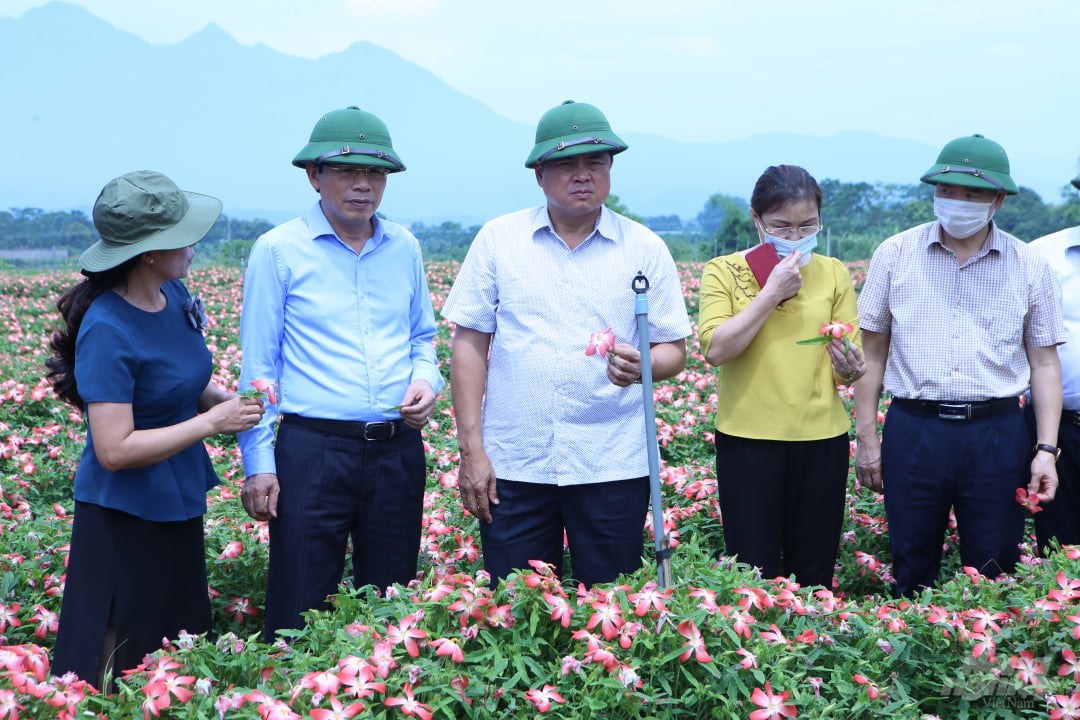
The Bo Chinh ginseng growing model in Thanh My new rural commune, Son Tay town, Phuc Lam Hi-tech Agricultural Cooperative, with a scale of 5ha. Photo: Minh Phuc.
Previously, the people on this hilly land only grew cassava, so the income was very low. In 2020, Thanh My commune government has coordinated with Phuc Lam Hi-tech Agricultural Cooperative to mobilize people to lease land to the cooperative (VND 1.5 million/360 m2/year) to deploy a new model, that is the Bo Chinh ginseng.
After the processes of soil improvement, mechanization application in the stage of soil preparation and organic planting, Bo Chinh ginseng has adapted to the land of Son Tay.
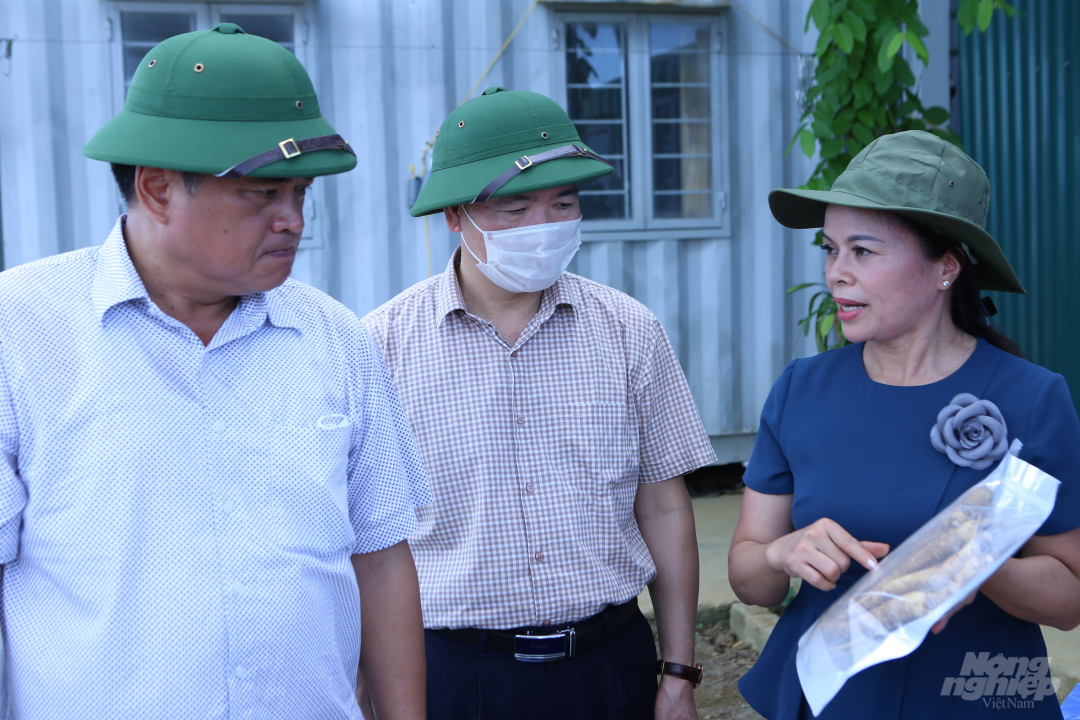
Bo Chinh fresh ginseng products are packaged and consumed. Photo: Minh Phuc.
According to Mrs. Nhung, Director of Phuc Lam Cooperative, The company really hopes to expand the size of the Bo Chinh ginseng material area, but the land rental encounters a big obstacle because the land in the North is very fragmented. To accumulate 5ha of land, the cooperative had to work with more than 120 households. Moreover, because the agricultural land management mechanism is too strict, cooperatives are not allowed to build warehouses to store and process raw materials on-site.
Deputy Minister Tran Thanh Nam suggested that Phuc Lam Cooperative should study different methods of land accumulation. For example, farmers will use their land plots to contribute shares to the cooperative, and those who do not have land will contribute money to invest in production infrastructure, input materials, preservation and processing...
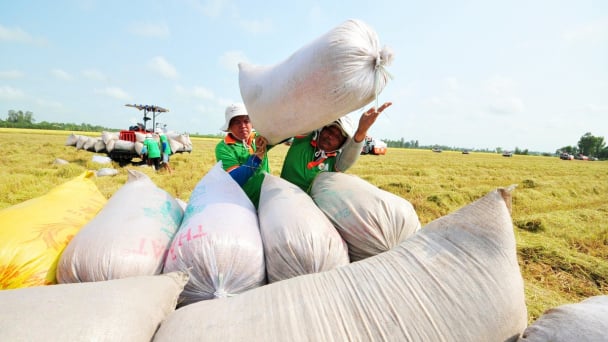
(VAN) The rice industry in the Mekong Delta is undergoing a major transformation, shifting toward sustainable, high-quality, and low-emission exports to meet the green and clean standards increasingly demanded by international markets.
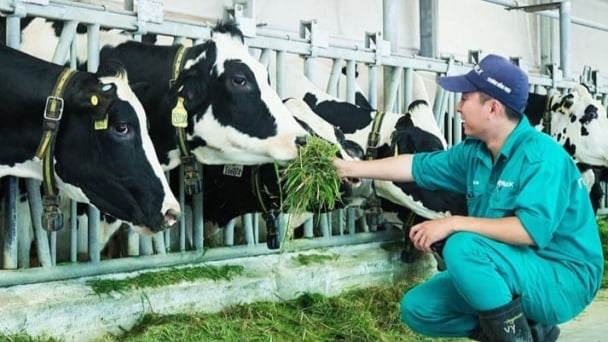
(VAN) According to Tong Xuan Chinh, Deputy Director of the Department of Livestock Production and Animal Health, Vietnam’s dairy cattle industry must overcome seven major challenges to achieve sustainable development.
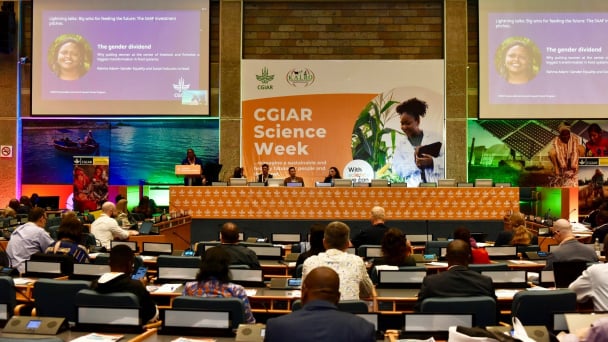
(VAN) The CGIAR’s Sustainable Animal and Aquatic Foods (SAAF) program represents a new approach that emphasizes the transformation of food systems toward sustainability.
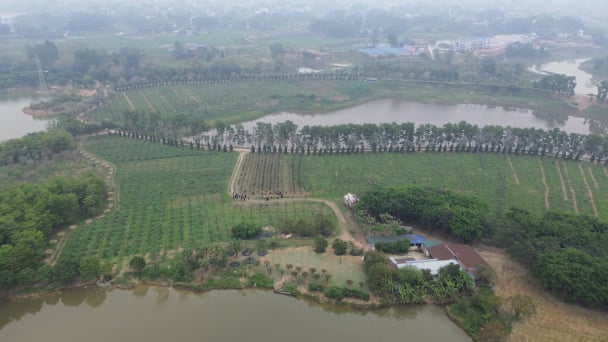
(VAN) Scientists assume that industrial agriculture has been 'outdated.' As a result, a comprehensive overhaul or a revolution in the direction of embracing ecological agriculture is needed.
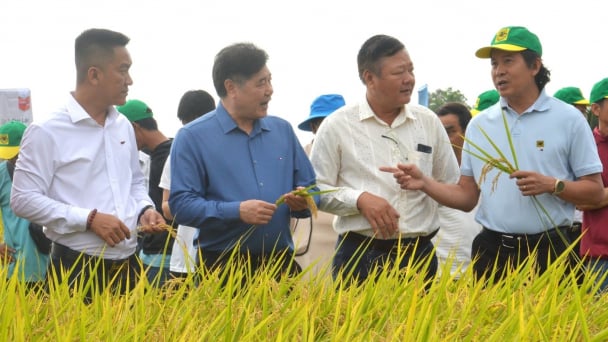
(VAN) The results from pilot fields are catalyzing the expansion of the One million hectares of high-quality, low-emission rice project in Kien Giang.
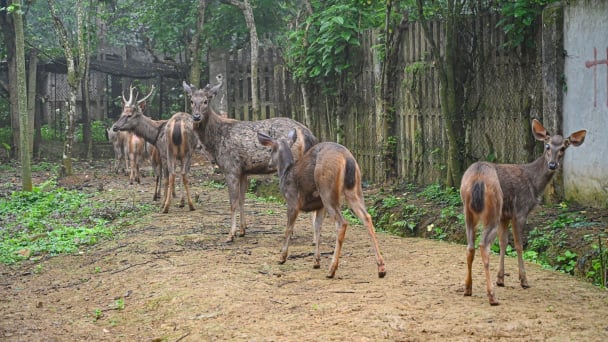
(VAN) On the morning of April 11, Cuc Phuong National Park received 18 individuals of endangered and rare wild animals from Da Nang city.
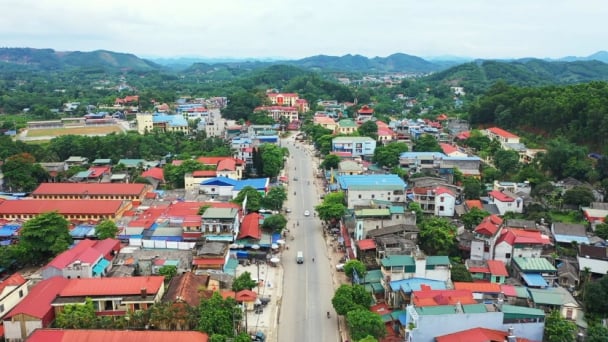
(VAN) FAO supports Vietnam in enhancing survey sampling techniques for the 2025 nationwide agricultural and rural census.